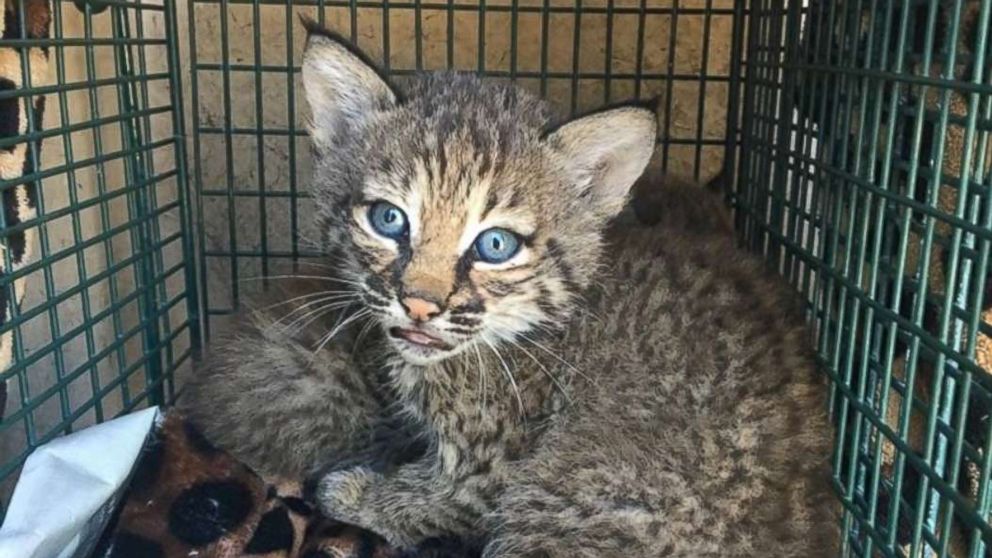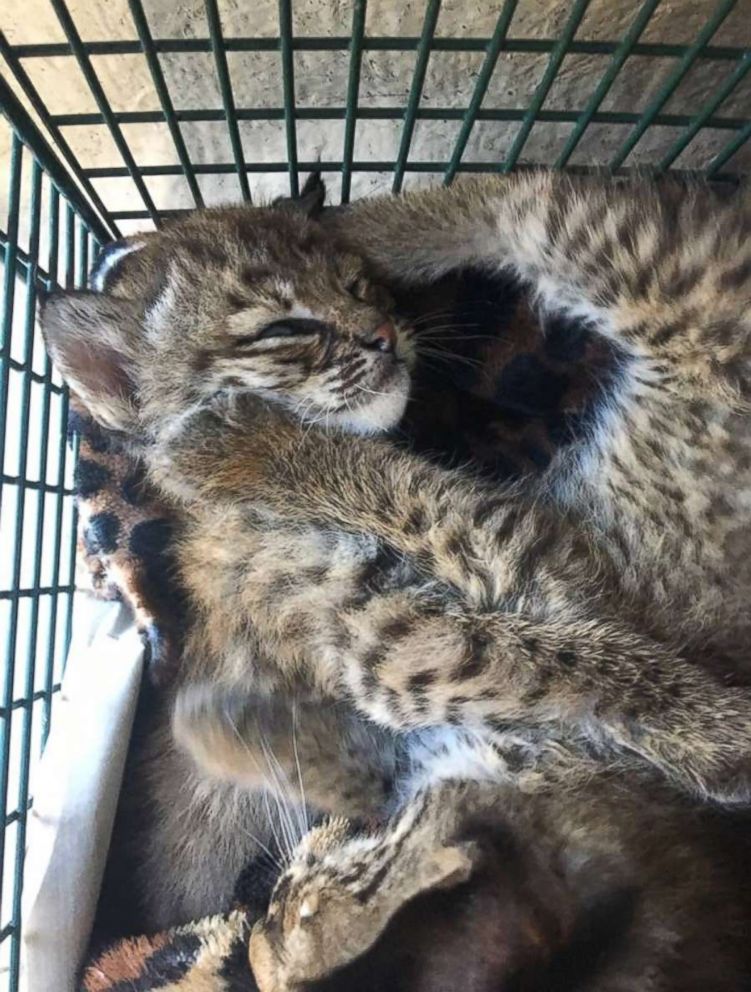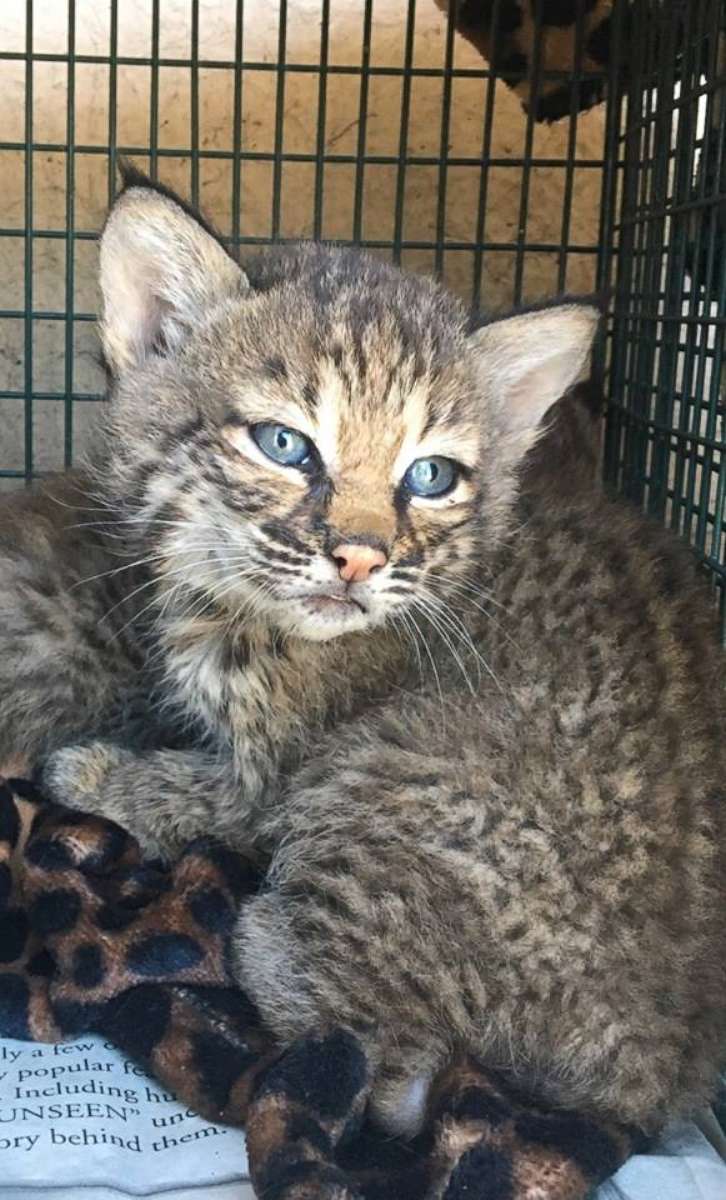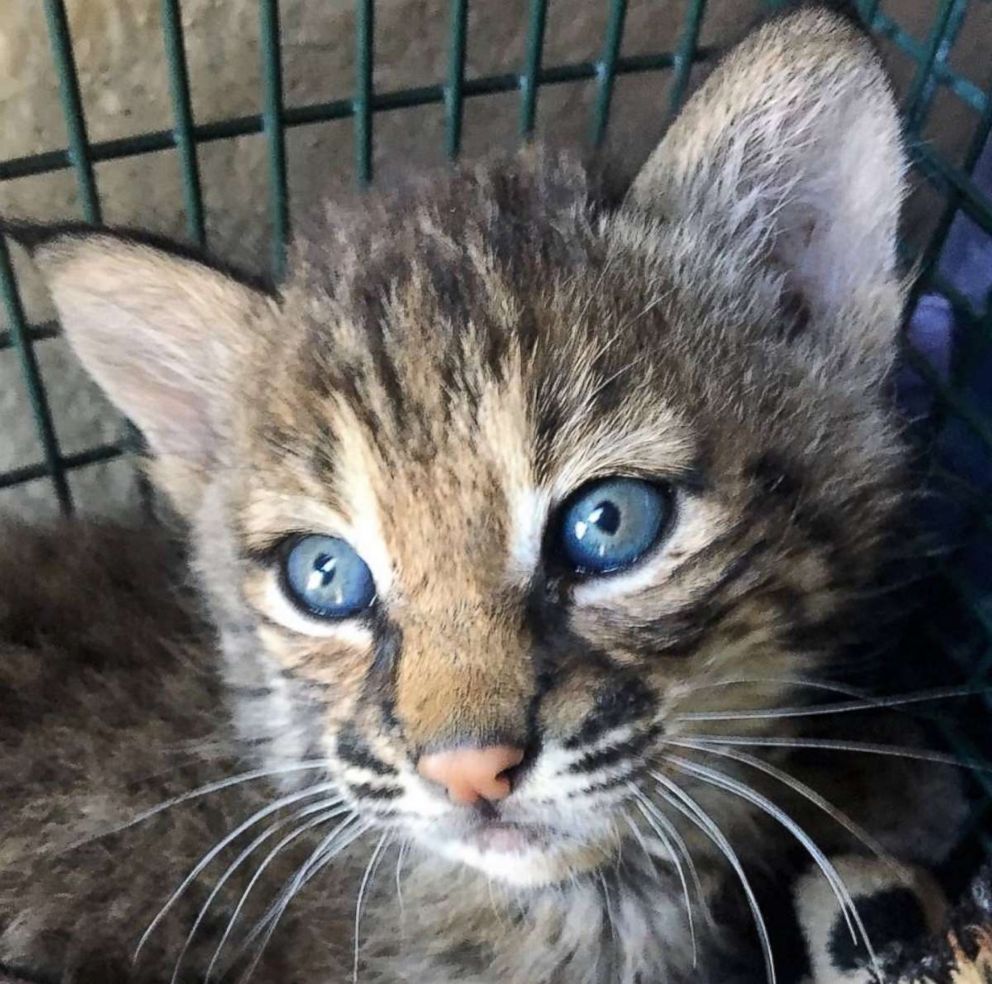3 injured after handling bobcat kittens they mistook for domestic kittens
Wildlife experts urged well-meaning humans to leave wildlife in the wild.

Three people in Texas suffered minor injuries over the weekend after mistaking two bobcat kittens for domestic kittens and bringing them inside the house, according to local authorities.
The kittens were found in an alleyway in San Antonio on Saturday, San Antonio Animal Care Services spokeswoman Lisa Norwood told ABC News. After the three acquaintances brought the kittens inside, they were bitten and scratched as they were trying to feed the bobcat kittens milk for domestic kittens, Norwood said.
The trio had the bobcat kittens for about a day and a half before they realized they were not house cats, Norwood said. Once they noticed the bobbed tails and how robust the kittens were, they took the baby felines to animal care, Norwood said.
The injuries they suffered were minor - bites to the hands - and did not require hospitalization, she said.

On Monday, the bobcat kittens -- one male and one female -- were taken to Wildlife Rescue and Rehabilitation in Kendalia, Texas, the sanctuary's founder and president, Lynn Cuny, told ABC News.
Cuny warned would-be good Samaritans against tampering with wildlife, instructing them to "assume that everything's fine," leave the animals alone and call wildlife experts instead.
"These kittens should have never been taken away from their mother," who was likely hiding from the humans or hunting for food, Cuny said.
Part of the problem, Cuny acknowledged, is that the kittens are "so cute" and it grabs the attentions of humans.

The kittens are currently "doing fine" but are stressed out due to the drastic change in environment, Cuny said. It took them "several hours" to get used to being fed be humans, she said.
Caregivers are hoping to reunite the kittens with their mother, but she has not been spotted around the San Antonio area, Cuny said.
"The occurrence of bobcats in the city is decidedly rare," she said, adding that they typically only get calls for bobcats in rural areas.

Releasing predators back into the wild is a challenge with predatory animals because they typically stay with the mother for up to two years, and she teaches them how to hunt, hide and take care of themselves, Cuny said.
"They know they’re supposed to be with their mother," Cuny said.
In hopes of releasing them back to the wild, caregivers are attempting to handle the kittens as little as possible so they do not become "habituated to dealing with humans," Cuny said. The kittens haven't been named, and they are only being cared for "as much as they need." They are also being housed in a protective area, where they can hear the sounds of nature, she said.
The brother and sister bobcats are "alert and bonded to each other," Cuny said.
"They don’t separate," she said. "They're on top of each other all the time. That’s very comforting for them."
If caregivers cannot release the bobcats back in the wild, the kittens will live on the rescue center's 212-acre sanctuary, Cuny said.




